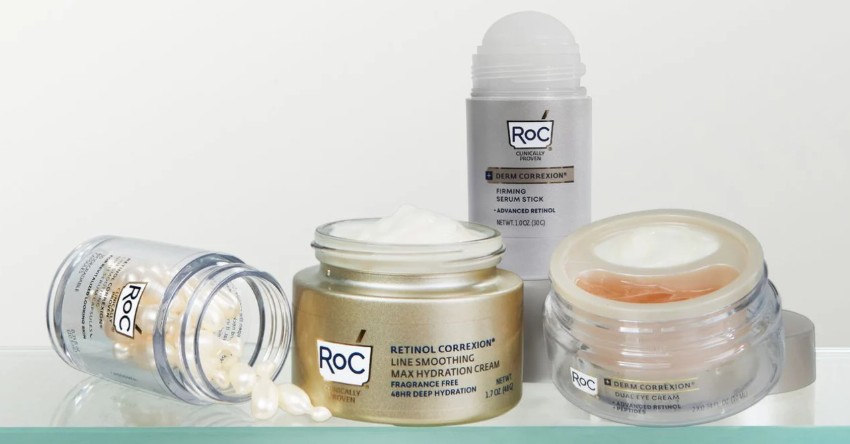The low-voltage economic rebound of the past two years has barely registered in most marketing departments. In particular, high ranking execs have seen salaries either stagnate or shrink since 2003. Meanwhile, marketers have seen their workloads increase substantially as corporate demands more results with fewer resources.
According to the PROMO Salary Survey, the average base pay for marketers across all job levels was $74,145, as compared to $79,198 in 2003, when PROMO last conducted this poll among marketers. As a group, our survey pool was less likely to see a salary increase in the past 12 months (59% in 2005 vs. 75% in 2003). When they did get a raise, they were more likely to get a 15% or higher salary increase (23% of respondents in 2005 vs. 6% in 2003); and they were less likely to have received a 3% salary increase (14% of respondents in 2005 vs. 28% in 2003). More were likely to have had a salary increase come from a new job (15% in 2005 vs. 3% in 2003); and respondents were less likely to have had a salary increase come from a raise following an annual review (66% in 2005 vs. 85% in 2003).
But beneath the broad picture is evidence of a shift in ways marketers are recognized and rewarded by their employers. In particular, many managers and their bosses are being compensated for specific results (such as sales or corporate profits) via bonuses rather than more stable salary increases. In fact, when bonuses, commissions and other compensation are factored together, total packages averaged $95,493 in 2005, vs. $85,688 in 2003.
A high rung on the corporate ladder is not what it once was. Both salaries and bonuses for executives (CEO, president, owner, and executive or senior VP) has dropped since 2003, by 28.4% and 20.7% respectively, for a total compensation rate that plummeted by 26.9% to an average $111,678.
Among the executives who actually got a pay increase in 2005 (often via a job change) there were enormous variations, from as high as 300% to a barely-there 1% raise. This skewed the average annual increase over 2004 salaries (which were not tracked separately in the survey), coming in at 22.2% despite the negative comparison to 2003.
One tier down, directors saw their salaries edge up slightly over 2003, by 5.3% to $81,287, while their bonuses dropped 20.8%; overall compensation for this group ticked up by 1.4% to an average $91,794, as compared to $90,466 in 2003. (That fades in comparison to 2001, when total compensation for directors averaged $97,186 — or 5.9% more than 2005.)
Meanwhile, managers made out better than their seniors in terms of percentage of increase. Salaries averaged $66,754, up 7.1% over 2003. Bonuses increased by a whopping 19.5% — the best increase of any compensation measure in the survey. When the two components are tallied, average total compensation grew 8.5% for brand managers in two years.
As in prior years, salaries for brand marketers correspond closely to the size of their budgets, with the largest departments paying the best. Brand organizations with an annual promotion budget over $1 million have seen steady salary increases since 2001, while those with budgets under $100,000 have continually declined.
It may be surprising, therefore, that larger corporations have been consistently scaling back marketer salaries. Companies with annual revenues over $15 million continued trimming salaries between 2003 and 2005, with the most stringent cuts at firms that ranged between $100 million and $1 billion. Average salaries here for executive, directorial and managerial level marketers went from an average $93,229 in 2003, to $82,019 — down 12.0%.
Large or small, these companies tend to stick to tried-and-true cash to motivate their leaders. One hundred percent of the marketers with promotion budgets over $500,000 said their employers offered some version of a cash incentive above and beyond base salary, while 89.4% of marketers with budgets under $500,000 did so. Travel incentives were nearly uniform across both groups, with just over 11.5% reporting it as a reward. Gift card incentives were more available to employees with the larger overall promotion budgets (10.3% of these respondents) than to those operating with more stringency (5.3%).
When asked to cite other types of incentives offered by employers, our survey pool mentioned assorted goodies ranging from more paid time off to a frozen ham.
When asked what triggered rewards beyond their salaries, managers and directors most often cited merit or performance criteria (56.3% and 69.6%, respectively), while 54.8% of the executives said they were primarily judged on profits. Least frequently cited bonus factor: years of service.
What they bring to the job
Despite the inequity in their raises, women participating in the survey have made measurable advances toward higher positions at their companies. In 2003, just 27.1% of top executives at brand corporations were women; in 2005, they constitute 41.2% of the top tier. During that same period, while 44.4% of women were directors two years ago, they are now the majority — or 54.3% — of that tier.
Perhaps the increase in the percentage of male managers corresponds to promotion of their female counterparts over the past two years, or perhaps fewer women were moving up from staff to management positions. In 2003, women had been 64.8% of all managers in the PROMO survey, while in 2005 that number reached just 51.3%.
There have also been perceptible shifts in the levels of education brand marketers bring to the job, as well as overall years of experience in marketing, in their companies and in their current roles.
Respondents to the 2005 study are: Less likely to hold Bachelor’s degrees (48% in 2005 vs. 60% in 2003); average 13.9 years in their careers, as compared to just 12.4 years of career experience among the 2003 respondents; more likely to be with their present company for only one year (22% in 2005 vs. 11% in 2003); less likely to be in their current position for two to three years (27% in 2005 vs. 42% in 2003).
The volatility suggested by several of these points may reflect the layoffs and downsizing that were common in many marketing departments two years ago, and continue at some to the present.
And while corporations may have begun modest rehiring at the managerial levels and above, statistics indicate that they are still slow to restore the junior ranks. As compared to two years ago, more of the brand managers — and even directors — are more likely to not supervise any full-time employees (34% in 2005 vs. 21% in 2003).
Straining to balance it all
More of those marketers surveyed this year are likely to control a total promotion budget of less than $50,000 (34% in 2005 vs. 16% in 2003). The estimated mean budget has dropped to $1,518,814 in 2005 vs. $1,894,561 in 2003.
Such continuing corporate stringency, combined with ever-increasing demands for better promotions and higher sales, are taking a toll on most of the marketers we surveyed. “I struggle to balance corporate demands with personal needs,” was a typical response when we asked those polled to described the most pressing issue they face in their careers.
Across the board, regardless of seniority, a 65.8% majority of the survey pool reported an increased workload compared to two years ago; only 5% said their workload actually decreased since 2003.
Chalk it up to more work for a workforce that has remained virtually unchanged in the wake of the 2001-2003 layoffs: 56.8% of our survey group say they supervise the same headcount as in 2003.
To make up the difference, 68.9% say they have covered added work internally with existing staff; 22.2% say they have outsourced some tasks; others say they simply “stay longer hours or take work home to get it done.”
Overall, the survey group is less likely to work between 41 to 50 hours per week now than they did two years ago (46.9% in 2005 vs. 58.0% in 2003). Across all ranks, 23.3% say they now work 51 to 60 hours per week on average, while 9% say they work more than 60 hours.
Perhaps not surprisingly, executives have the greatest latitude, with 13.4% saying they work less than 35 hours per week and 20.6% saying they work 60 hours or more in an average week.
As we reported two years ago, these are not easy times for the faint of heart (or the sleep dependent). While few of this year’s respondents are satisfied with their current staffing or salary pool allocations, most are holding out for a turnaround. As at least one hardy soul wrote in, “There is no upward mobility — but I love my job!”
Methodology
In May 2005, an e-mail invitation to participate in a survey was sent to 6,193 PROMO Magazine subscribers who had previously categorized themselves as marketers for manufacturing, service or retail companies. Of the original list of addresses, 4,959 were delivered (the remainder bounced back or were undeliverable). Among the surveys received, 62 were incomplete and 322 complete, resulting in an effective response rate of 6.5%.
 Network
Network



